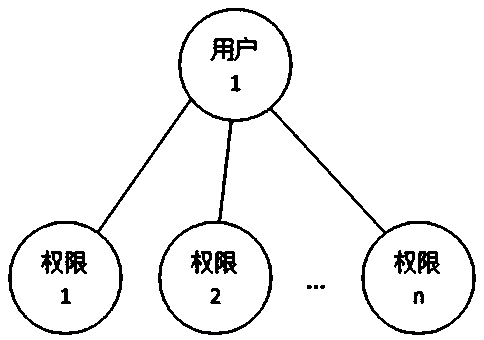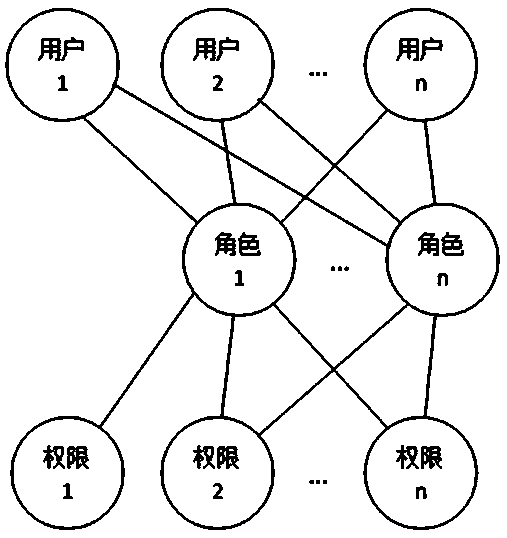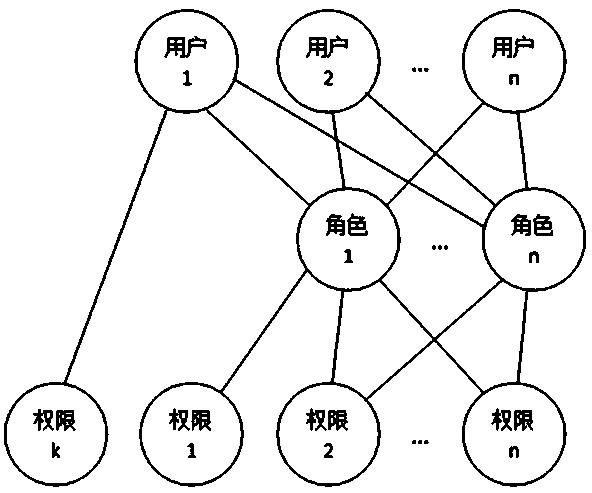Role and user one-to-one correspondence-based workflow control method and system
A control method and workflow technology, applied in transmission systems, data processing applications, instruments, etc., can solve problems such as increased authorization, complex time-consuming, error-prone, etc., to achieve clear and simple understanding, simplified authority management, and small changes in quantity Effect
- Summary
- Abstract
- Description
- Claims
- Application Information
AI Technical Summary
Problems solved by technology
Method used
Image
Examples
Embodiment 2
[0095] [Example 2] such as Figure 5 and Figure 7 As shown, the step S1 includes the following sub-steps:
[0096] S101: Create roles, each role is an independent individual, not a group / class;
[0097] S102: Authorize the roles created in S101 respectively;
[0098] S103: Associating users with roles, where a role can only be associated with a unique user at the same time period, and a user is associated with one or more roles;
[0099] Step S101 comes first, but there is no sequential relationship between step S102 and step S103.
[0100] The user determines the authority through its association with the role. If you want to modify the user's authority, adjust the authority of the role to achieve the purpose of changing the authority of the user associated with the role. Once a user is associated with a role, the user has all the operation permissions of the role.
[0101] The role-to-user relationship is one-to-one (when the role is associated with a user, other users...
Embodiment 4
[0121] [Example 4] A role-based one-to-one workflow control system for users, including a model building unit, a workflow control unit and an approval operation unit:
[0122] The model building unit is used to build a three-layer structure model of user-role-permission, in which:
[0123] Role layer: The operation subject of process approval in the workflow is a role, each role is an independent individual, not a group / class, a role can only be associated with a unique user at the same time, and a user is associated with one or more roles;
[0124] Permission layer: It is composed of the permissions needed in workflow execution, and the permissions are directly authorized to roles;
[0125] User layer: Users determine the approval tasks in the workflow through the associated roles, and perform approval operations with the permissions of the associated roles;
[0126] The workflow control unit uses a three-tier structure model to control the workflow. An approval process incl...
Embodiment 5
[0136] [Example 5] The following example shows that after employee Zhang San enters a company, the relationship among employees, users and roles is as follows:
[0137] 1. New entry: For new employees, just select the corresponding position number / position number role for the user (employee) to associate, for example: Zhang San joins the company (the company assigns a Zhang San user to Zhang San) , the job content is in the sales department, responsible for the sales of refrigerator products in the Beijing area (the corresponding role is the role of "Sales Engineer 5" under the sales department), then user Zhang San can directly select the role of "Sales Engineer 5" to associate .
[0138] 2. Increase positions: After Zhang San worked for a period of time, the company also arranged for Zhang San to be responsible for the sales of TV products in the Beijing area (the corresponding role is the role of "Sales Engineer 8" under the first sales department) and concurrently as the s...
PUM
 Login to View More
Login to View More Abstract
Description
Claims
Application Information
 Login to View More
Login to View More - R&D
- Intellectual Property
- Life Sciences
- Materials
- Tech Scout
- Unparalleled Data Quality
- Higher Quality Content
- 60% Fewer Hallucinations
Browse by: Latest US Patents, China's latest patents, Technical Efficacy Thesaurus, Application Domain, Technology Topic, Popular Technical Reports.
© 2025 PatSnap. All rights reserved.Legal|Privacy policy|Modern Slavery Act Transparency Statement|Sitemap|About US| Contact US: help@patsnap.com



